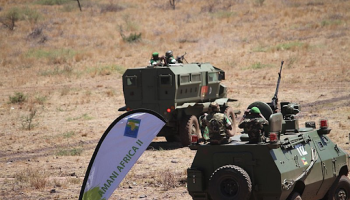The report emphasizes that the Mozambican government’s enduring involvement in the illicit trades of drug trafficking, human smuggling and wildlife poaching thwarts its efforts to combat militant group al-Shabab.
The illicit economy has nourished corruption, kept borders and coastlines porous, and crippled state legitimacy.
“Political figures, the ruling party and their elite criminal associates have openly benefited from both the licit and illicit extraction of natural resources, while the local community has often been punished for their involvement in informal illicit economies and denied the benefits of formal investment and economic growth,” Global Initiative said.
By leaving many of its citizens discontent and encouraging opportunities for criminals to flourish, the state has created the ideal habitat for al-Shabab to accumulate funds, accrue followers and use violence to challenge the status quo.
Al-Shabab’s militants do not control a specific illicit trade but rather find opportunities in the illicit economy as a whole to gather funds. Like in Somalia, Tanzania, Kenya and Sudan, government corruption and Islamic extremism have fed the insurgencies.
Corruption has broken down law and order especially in northern Mozambique, where militants are more socially and economically embedded than many believe. Moreover, efforts to control the free flow of people and goods in the northern port of Mocimboa da Praia and the Tanzanian border have failed.
Two of the port city’s neighborhoods, Nabobozi and Nacala, are outside of government control. The unregistered marina at Nabobozi, where fishermen dock and launch their boats, is not regulated by the state but rather controlled by the fishermen and businessmen who use it.
A customs officer said “Nabobozi is a protected neighborhood by the local population who benefit by illicit activities, and drugs, ivory and timbers are loaded and unloaded there.”
In 2015, customs officers were almost lynched by locals after they seized a large quantity of cannabis.
"When we went to load and take it to the custom storehouses, the local population screamed at us saying, “Leave our products,” one of the officers said. "And they came at us, trying to attack us. We left the drugs and ran away."
As the insurgency develops, so does its connection to the illicit economy. At one point the militants might even try to gain a more central position in the shadow economy. They might attempt to control the production of gems and timber or start taxing contraband that comes in along the coast, similar to organized crime groups in Europe.
“Given the factors that underlie conditions in the north, it is likely that the illicit economy and the insurgency will grow, and violence will increase,” Global Initiative said. “If so, it is possible that northern Mozambique will become a platform for launching assaults and furthering the aims of criminal networks across the wider region.”






